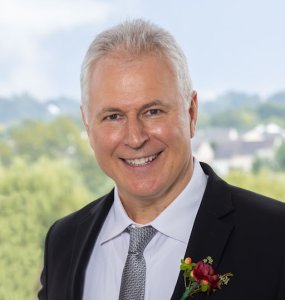Presented By: Nuclear Engineering & Radiological Sciences
NERS Colloquium: Computational Fluid Dynamics in Support of Nuclear Safety and Regulation
Speaker: Christopher Boyd, Nuclear Regulatory Commission

Computational Fluid Dynamics (CFD) has been around for many decades and is used in almost all industries where fluids are in motion. These techniques, however, are not as widely used at the NRC for reactor licensing calculations. Several factors are at play that will likely result in an increase in the use of CFD techniques. Reactor vendors are using CFD in the design of new reactors, computer capacity increases have made the analyses more practical, and recent engineering graduates are familiar with the approach. The ability to predict complex flow behavior in almost any geometry gives CFD the potential to add insights for certain safety analyses that are not realizable with the traditional reactor system codes. Challenges, observations, and lessons learned from 25 years of working with CFD techniques at the NRC are discussed along with considerations for the future.
Dr. Christopher Boyd is a senior level advisor for computational fluid dynamics (CFD) within the Office of Research at the Nuclear Regulatory Commission (NRC). His focus is on CFD analyses and benchmarking efforts aimed at understanding safety issues and reducing uncertainty with the overall goal of improving regulatory effectiveness at the NRC. Prior to working for the NRC, he worked as a wind tunnel project engineer focused on measurement techniques and calibration issues in high speed wind tunnels at the Naval Surface Warfare Center in White Oak, Maryland. Dr. Boyd received a Ph.D. in Mechanical Engineering from the University of Maryland in 1996 with academic research interests in turbulence, modelling, and heat transfer.
Dr. Christopher Boyd is a senior level advisor for computational fluid dynamics (CFD) within the Office of Research at the Nuclear Regulatory Commission (NRC). His focus is on CFD analyses and benchmarking efforts aimed at understanding safety issues and reducing uncertainty with the overall goal of improving regulatory effectiveness at the NRC. Prior to working for the NRC, he worked as a wind tunnel project engineer focused on measurement techniques and calibration issues in high speed wind tunnels at the Naval Surface Warfare Center in White Oak, Maryland. Dr. Boyd received a Ph.D. in Mechanical Engineering from the University of Maryland in 1996 with academic research interests in turbulence, modelling, and heat transfer.